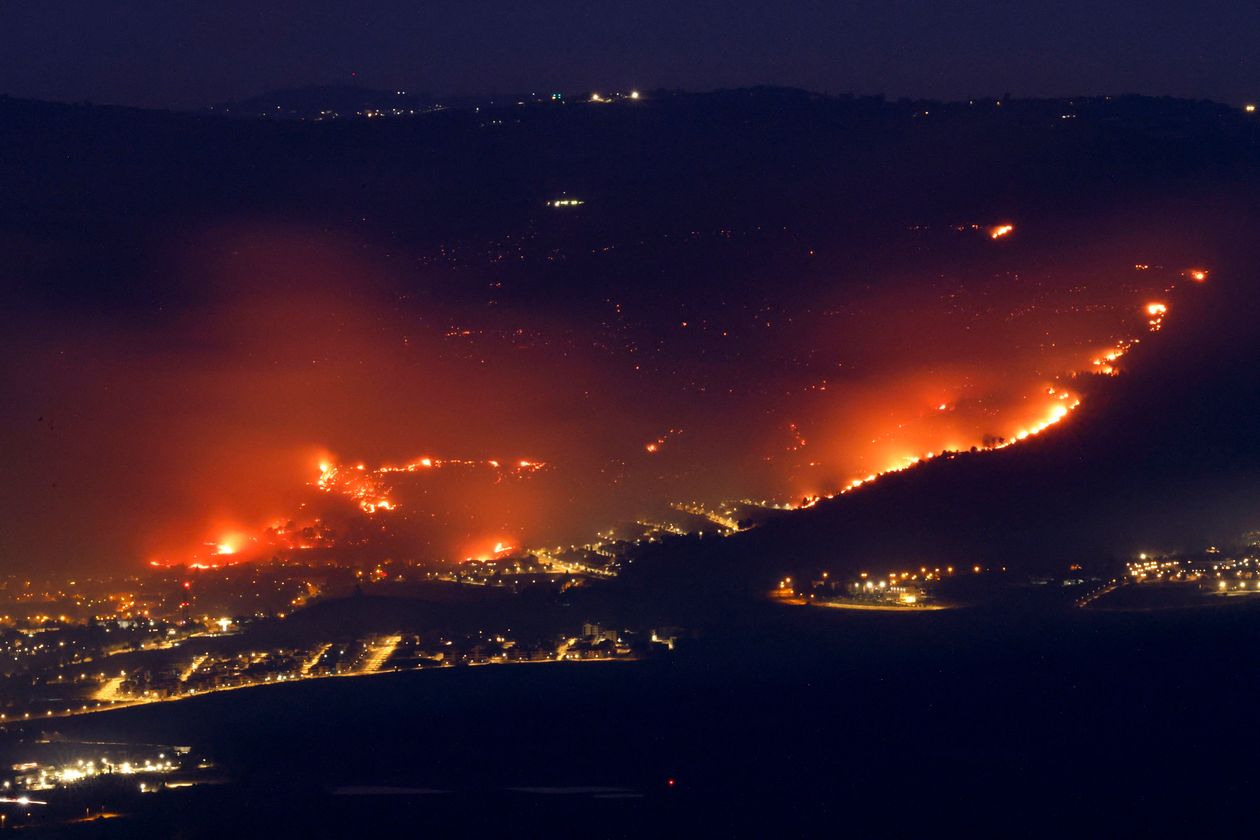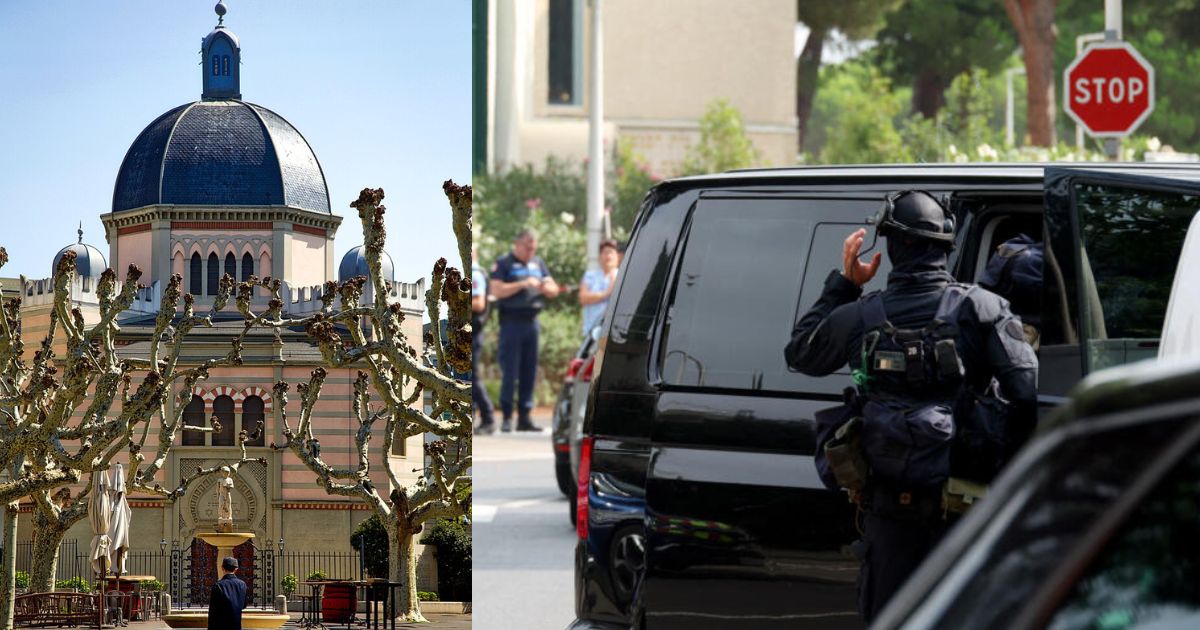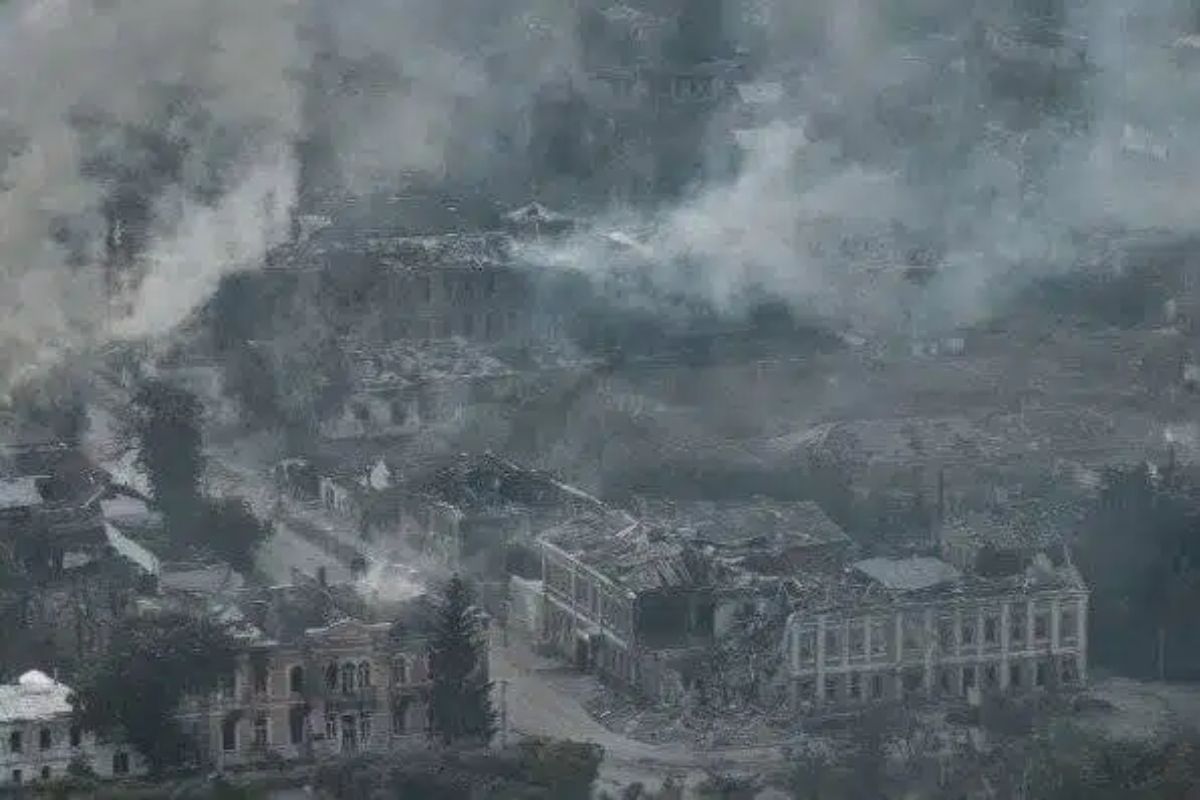After months of intensifying tensions with the terrorist Lebanese organization, Israel and Hezbollah are getting closer to a full-scale war, which is increasing pressure on Israel’s government to safeguard its northern border.
One day after the current conflict in Gaza began with a fatal invasion launched by Hamas inside Israel, Hezbollah, a terrorist group designated by the United States and closely associated with Iran, opened a front with Israel on October 8.
According to Hezbollah, their operations are in defense of the Palestinian people and won’t end until Israel ends its conflict in Gaza. Israel first tried to balance its response to Hezbollah by retaliating with titbit-for-tat assaults, hesitant to launch a full-scale war.
However, both parties claim that hostilities have sharply increased in recent weeks. Hezbollah has escalated its use of drones and rockets, striking key Israeli military targets. Israel has also increased its attacks, going at key military officials in Hezbollah as well as organization locations located deep within the Bekaa Valley in southern Lebanon.
Israeli leaders claim that an invasion is unavoidable in the absence of a cease-fire in Gaza and a subsequent agreement with Hezbollah that satisfies Israel’s demands.
Minister Benny Gantz of Israel’s military cabinet stated that either “through a deal or an escalation,” Israel will bring back people to northern Israel by September 1st when classes resume.
On Tuesday, Israeli Prime Minister Benjamin Netanyahu declared that his country was ready to take “extreme action” against Hezbollah. “Whoever believes he can harm us and we will remain motionless is gravely mistaken.”
Beginning on Sunday, Hezbollah drone and missile assaults set up wildfires that spread throughout northern Israel. By Tuesday morning, the fire was mostly contained and had not resulted in many casualties. However, pictures sparked calls in Israel for the government to launch an attack following around eight months of low-intensity combat with Hezbollah, which has forced nearly 60,000 Israelis from their homes.
“They are burning here; we must destroy and set fire to all of Hezbollah’s bases.” Israel’s far-right national security minister, Itamar Ben-Gvir, exclaimed, “War!” while visiting the fire-affected Israeli city of Kiryat Shmona on Tuesday. The fighting and continuous Hezbollah bombing from Lebanon have left it mainly abandoned.
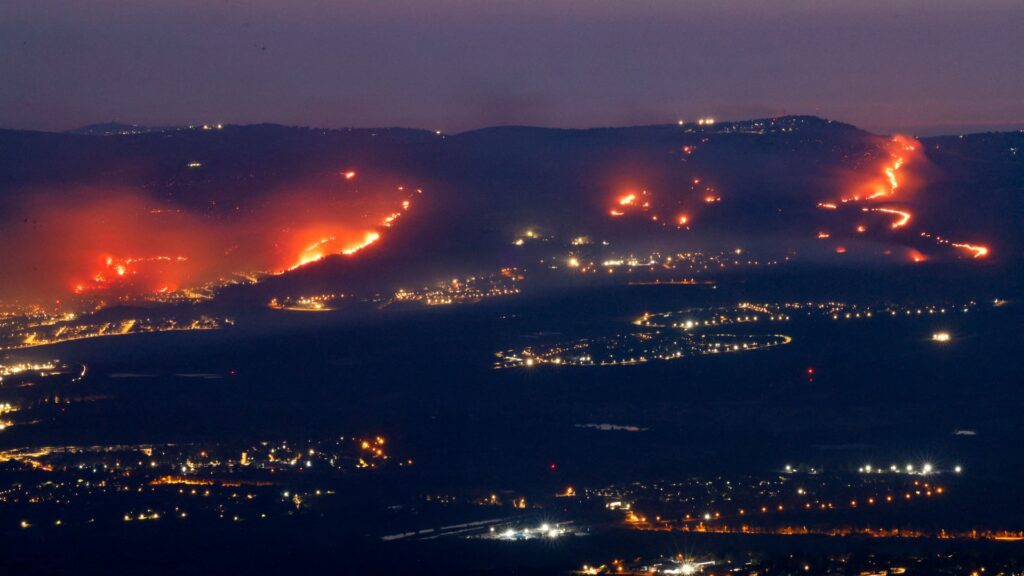
For months, the United States and France have been traveling back and forth between Israel and Lebanon as they try to work out the details of a diplomatic settlement to the conflict.
According to officials briefed on the discussions, Hezbollah’s fighters are expected to be moved over 6 miles north of Israel, past the Litani River, and the arrival of international or Lebanese military forces might compel the terrorist group to leave the border area. Pre-existing boundary conflicts would also be discussed and resolved by Israel and Lebanon.
A request for the response was not immediately answered by Lebanese officials.
Retraction of forces would keep Hezbollah outside Israeli towns’ antitank missile range and eliminate the possibility that the organization will fulfill its long-standing promise to attack and conquer northern Israel.
Many Israelis in northern Israel claim that returning to their homes won’t be possible with just a cease-fire.
Giora Zaltz, the chairman of Israel’s regional district bordering Lebanon, stated that the major two dangers his people fear are a Hamas-style assault into their land by Hezbollah’s elite Radwan fighters and shoulder-launched missiles that Israel cannot readily intercept. To ease their concerns, Zaltz stated that expanding Hezbollah personnel and weaponry many miles into Lebanese territory would call for either an enforceable diplomatic settlement or military action.
He stated that residents will not return to their houses till this is done. “The border will move farther and farther south,” he stated.
Hezbollah, a significant political organization in Lebanon, has stated that it will not agree to any diplomatic arrangement with Israel until the conflict in Gaza is over. Despite President Biden’s repeated efforts for a cease-fire in Gaza, considerable hurdles remain, and Israel maintains it will continue fighting in Gaza at some level until the end of the year.
Hassan Fadlallah, a member of Hezbollah’s parliamentary bloc, stated that the key message underlying Hezbollah’s actions is that the party is prepared for a full-scale war with Israel and will fight without regard for laws or limitations.
“We have called for a cease-fire in Gaza and we aren’t planning to widen the war, but if Netanyahu decides to expand the war, it won’t be a walk in the park,” he stated.
Many Israelis in the north say they don’t trust Hezbollah to follow through on any agreements, and instead want Israel to evacuate Lebanese communities along the border where Hezbollah militants live and may return as civilians. Otherwise, they claim, many people would not come home.
“We gave our chance to the diplomatic strategy in 2006,” stated Nissan Ze’evi, an Israeli border town resident. “It became a total failure.” Only a military response, he claimed, could make his family feel safe enough to return home.
Why Hezbollah and Israel are fighting?
Hezbollah started exchanging fire with Israel on October 8, one day after the Gaza War was started by the Palestinian terrorist organization Hamas attacking southern Israeli towns.
An ally of Hamas, Hezbollah claims their strikes are intended to assist Palestinians in Gaza who are being bombarded by Israel.
The fighting is a part of the broader fallout from the Gaza conflict, which has attracted extremists supported by Iran throughout the area. The most powerful element of the Iran-backed network known as the Axis of Resistance is generally agreed to be Hezbollah.
Hezbollah was expected to withdraw and keep away from Israel’s border by U.N. Security Council Resolution 1701, which was approved during a summer battle between Hezbollah and Israel in 2006.
However, Israeli officials claim that, rather than retreating, Hezbollah has gathered a collection of over 150,000 rockets and missiles, as well as thousands of battle-hardened infantrymen.
According to a Hezbollah spokesman, Israel has repeatedly violated United Nations Resolution 1701 by conducting aerial, naval, and ground incursions into Lebanese territory.
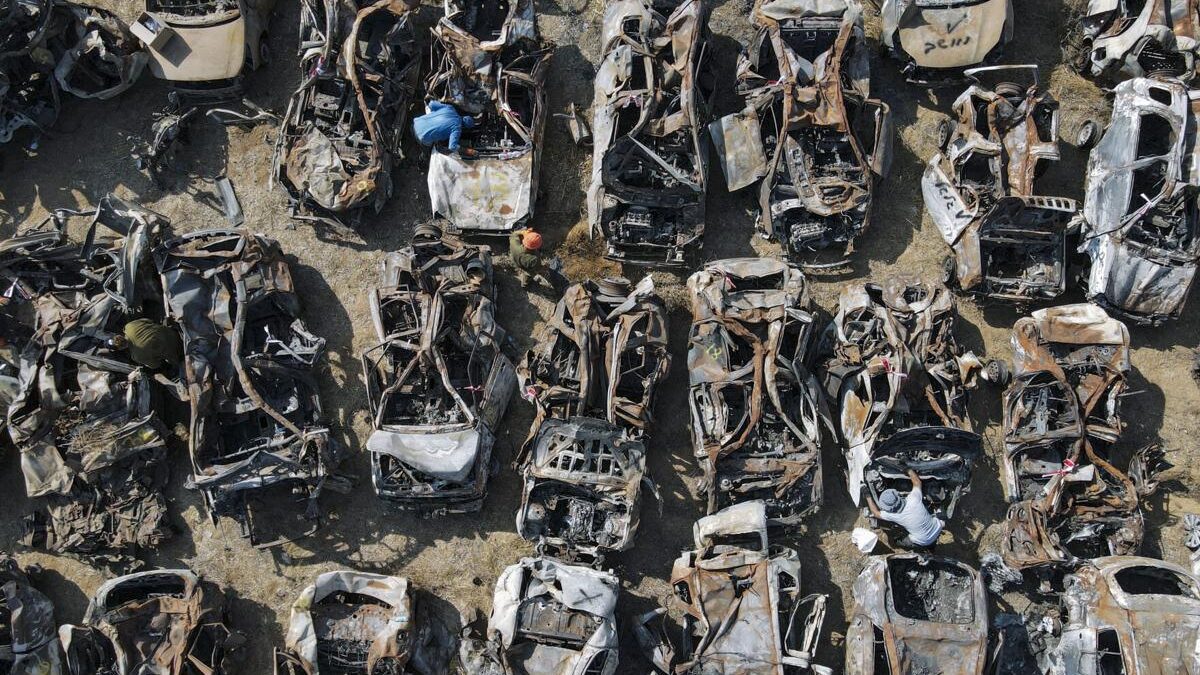
More than 100,000 Lebanese have been displaced as a result of the conflict, and many rely on Hezbollah for financial help. Najib Bajouk, a native of the border village of Aita el Shaab, fled in October after Hezbollah and Israel launched assaults on his homeland. He currently resides in Tyre with his wife and three children. “My house was destroyed due to Israeli bombing of the town, but when the cease-fire is reached I plan to go back and rebuild it,” he stated.
According to Chuck Freilich, a former deputy national security adviser in Israel, Israel might choose the lesser aim of driving Hezbollah across the Litani River or use the chance to disarm Hezbollah and eliminate the threat of its short-range rocket arsenal, which can overwhelm Israel’s air defenses.
Either choice, he stated, would almost certainly launch a full-fledged war, resulting in a “level of destruction that will be unmatched in Israeli history.”
According to an Israeli Air Force intelligence official, after nearly eight months of war, Hezbollah can still shift its soldiers closer and farther away from Israel’s border as needed.
The officer stated that each side has learned about the other’s weaknesses while attempting to avoid making any steps that may launch an actual war.
“Both sides are preparing and ready if something happens,” the officer stated.
Read More:
Israel-Gaza: Big Rocket Attacks on Tel Aviv by Hamas Militants
Source
The Wall Street Journal
